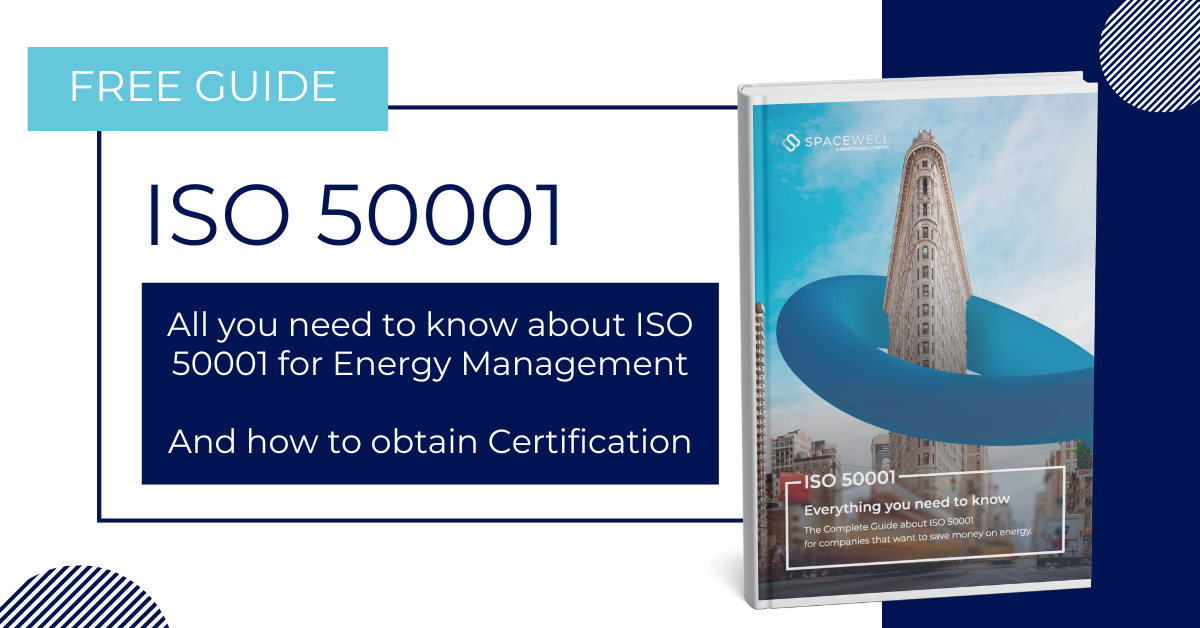After the publication of our guide to the ISO 50001 certification, we are opening up a new discussion topic on our blog today on the future ISO 52000, a new standard which is being drawn up to measure the energy performance of buildings.
What is ISO 52000
Many of you who read out blog are already aware: ISO 50001 is not the only certification affecting the world of energy efficiency.
There are many others, such as ISO 50002:2014 which is intended to harmonise the processes for conducting energy audits, as well as non-ISO certifications such as BREEAM, which we spoke about a few days ago in this webinar.
Today we will speak about an ISO that is being developed: ISO 52000
The organisation ISO has deemed it necessary to focus in a comprehensive manner on the energy management process, widening this and other standards related to such processes.
In this way, they have prepared a draft which is on the verge of publication to form standard ISO 52000 which will impact the energy efficiency of buildings throughout the world.
Why? Basically, ISO 52000 suggests an improvement on ISO 50001 which is intended to certify Energy Management Systems (EMS). ISO 52000 tackles the holistic focus of energy management and will concentrate on the definition, evaluation and systematisation of the energy performance of buildings.
The draft of the new standard suggests a systematic and regulated structure to integrate the energy performance of buildings which will cover:
- The definition of usual terms, definitions and symbolisation related to the energy consumption of buildings
- How the distribution of spaces should be carried out for different uses and what should be taken into account for each use
- A methodology to calculate the energy efficiency of buildings
- Methods to calculate the performance for zones and uses and requirements to formulate these calculations in the correct way
- Definition of performance indicators: which ones, how they should be measured…
What does this list mean? If you read between the lines, you will have realised that there is a type of building and activities which can benefit directly from the future new ISO.
We are referring to office buildings. Due to the way in which ISO 52000 is being considered, it appears that these are the type of buildings that could most directly benefit from the new methodology.
For landlords of offices, it is vital, for example, to know how to apply energy consumption indicators for each zone, and automate energy cost management and consumption for each tenant.
ISO 52000: Objectives
The ISO organisation is convinced that this new standard means an important impetus to energy innovation and energy management.
ISO commented in its publications that the objectives of ISO 52000 will mean:
- That the new standard will apply to new buildings, existing buildings, as well as buildings under construction or renovation
- Counting on the opinion and requirements of each state’s regulating institutions (an online tool exists through which regulators can send feedback to the ISO organisation)
For organisations, the objective is obviously to gain greater control over which indicators affect energy performance of buildings.
Bringing about definitions of common variables when working in the energy field will provide a common framework with which the energy manager will be able to unify and compare more easily between diverse projects.
When Will ISO 52000 be Available?
It’s not easy to give an answer to this question as ISO 52000 has ambitious objectives and is facing important challenges.
We can only tell you, through ISO’s web page, that the text has progressed and has passed the voting process. In this process, ISO technical committee members ask associations the world over their opinion on the finalised drafts.
This voting process finished in November 2015. The drafters are now working on introducing the necessary changes and revisions from the feedback received. A task that, one imagines, is far from easy.
For example, it is not easy to define calculation procedures such as those defined in the text, as they are affected by multiple variables which vary according to the country, climate, from one sector to another, the context…
Furthermore, these are calculations strongly related to energy management technology. Despite hardware being ever more powerful and accurate, you need to use hardware to adjust the metering devices.
It should be borne in mind that this new ISO will cancel UNE-EN 15603:2008 which defined the working methodology with overall energy consumption and provides a definition of energy evaluations.
Once ISO has a final draft, it will be submitted to a new voting process which will take two months.
Want to know more about ISO 50001? You can download the Free Guide: “ISO 50001: what is it and how to introduce it in my business.“




